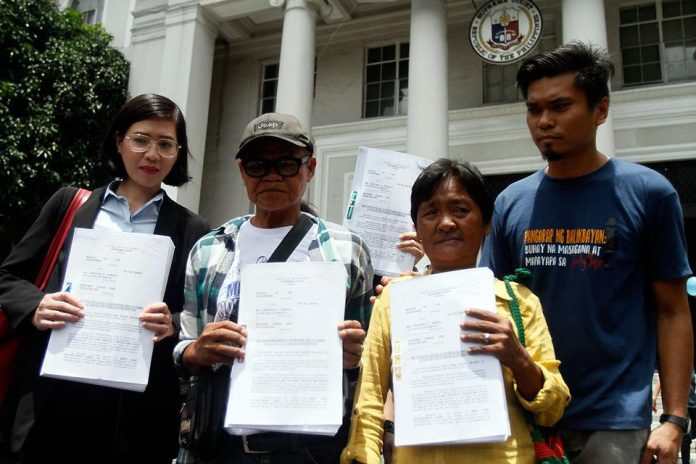
MANILA – The family of Mary Jane Veloso, a Filipino drug convict on death row in Indonesia, asked the Philippine Supreme Court on Monday to allow her to testify against her recruiters through deposition.
Veloso’s parents Cesar and Celia, in a 37-page petition, sought to lift the permanent injunction – issued by the Court of Appeals on Dec. 13, 2017 – that blocked her from testifying against Maria Cristina Sergio and Julius Lacanilao.
The appellate court affirmed the injunction in a resolution issued just this June 5.
Sergo and Lacanilao were being tried for qualified human trafficking, estafa and simple illegal recruitment charges. They were accused of duping Veloso into bringing heroin to Indonesia, resulting in her arrest and conviction.
Veloso’s camp insisted that the deposition would boost her defense.
In a petition for intervention with urgent prayer for status quo ante order, the Veloso couple said the Court of Appeals deprived their daughter of her “right to fair trial.”
The prohibition, they said, will prevent the Department of Justice from fully presenting its case “by means of crucial material evidence, thereby denying the victim of her opportunity to finally be heard.”
“The permanent injunction violates Mary Jane Veloso’s right to due process and fair trial,” read part of the petition. “It should be stressed that these rights do not tilt in favor of an accused at all times. In fact, the right to fair trial is not only available to the accused.”
According to National Union of People’s Lawyers secretary-general Edre Olalia, the Court of Appeals’ injunction had no basis “both in fact and in law.”
Olalia said the appeal to lift the injunction was “literally, and without an iota of exaggeration, a matter of life and death.”
On Aug. 16, 2016 Regional Trial Court (Baloc, Santo Domingo, Nueva Ecija) Branch 88 gave the Veloso camp the go-signal to take her deposition in Jakarta, Indonesia, but the Court of Appeals reversed this.
The appellate court sided with the arguments of Sergio and Lacanilao that allowing the Philippine Embassy in Indonesia to get her deposition would violate their right to confront the witness face to face and to have compulsory process to secure the attendance of witnesses and the production of evidence, which are guaranteed under Section 14, Paragraph 1 of the 1987 Constitution.
Olalia accused the appellate court of abusing discretion by “giving due course” to the petition of her recruiters to reverse a trial court order to allow Veloso to testify against them via deposition.
According to Olalia, the recruiters failed to show that the trial court committed grave abuse of discretion so their petition at the Court of Appeals should have been dismissed outright.
Veloso was arrested in Indonesia in April 2010 for smuggling 2.6 kilograms of heroin.
In October 2010 she was sentenced to death but was granted a stay of execution in 2016 after the Philippine government said her testimony would be vital in the human trafficking charges filed against her recruiters.
Indonesian President Joko Widodo stopped Veloso’s execution on April 29, 2015 after then President Benigno Aquino III appealed her case. (With a report from Philippine News Agency/PN)



